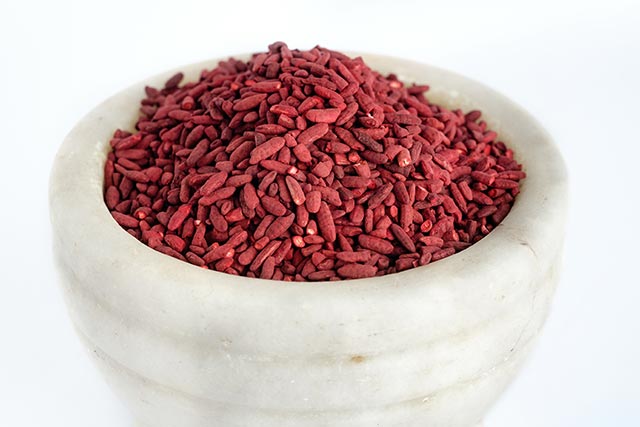Monacolin K in red yeast rice can lower low-density lipoprotein levels
06/03/2019 / By Evangelyn Rodriguez

This paper describes a randomized, double-blind, placebo-controlled intervention study conducted by researchers from the Leibniz University Hannover in Germany to evaluate the effects of a low moncacolin K dose and folic acid on plasma lipids and homocysteine levels, respectively. The results of their analyses were published in the journal Nutrition Research.
- Hypercholesterolemia and elevated homocysteine concentrations are associated with cardiovascular risk.
- Previous studies have shown that red yeast rice (RYR) supplements containing 5 to 10 milligrams (mg) of monacolin K can lower cholesterol levels.
- The researchers hypothesized that a low monacolin K dose could reduce low-density lipoprotein–cholesterol (LDL-C) and other plasma lipids.
- They also tested the ability of folic acid to lower homocysteine; folic acid was included in the study preparation.
- They randomly assigned 142 nonstatin-treated participants with hypercholesterolemia (LDL-C ? 4.14 ? 5.69 mmol/L) to either the treatment group or the placebo group.
- Participants of the treatment group consumed 3 mg monacolin K and 200 micrograms (ug) folic acid per day.
- The researchers found a significant (P < .001) reduction in LDL-C (?14.8 percent), total cholesterol (?11.2 percent), and homocysteine (?12.5 percent) in the treatment group after 12 weeks.
- They also noted that 51 percent of the participants treated with RYR achieved the limit of LDL-C (<4.14 mmol/L) advised, and 26 percent reached the threshold level of homocysteine (<10 umol/L).
- Meanwhile, they observed no significant changes in the placebo group; they reported no intolerance or any serious adverse events.
Based on these results, the researchers concluded that taking a low dose of 3 mg monacolin K from RYR daily reduces the concentration of LDL-C, which is a risk factor for cardiovascular diseases.
Read the full text of the study at this link.
Journal Reference:
Heinz T, Schuchardt JP, Möller K, Hadji P, Hahn A. LOW DAILY DOSE OF 3 MG MONACOLIN K FROM RYR REDUCES THE CONCENTRATION OF LDL-C IN A RANDOMIZED, PLACEBO-CONTROLLED INTERVENTION. Nutrition Research. October 2016;36(10):1162–1170. DOI: 10.1016/j.nutres.2016.07.005
Submit a correction >>
Tagged Under:
This article may contain statements that reflect the opinion of the author
RECENT NEWS & ARTICLES
COPYRIGHT © 2017 SUPER FOODS NEWS





















